Patsy Cline
"I can’t go on, I’ll go on."
Art Dogs is a monthly dispatch introducing the pets—dogs, yes!, but also cats, turtles, marmosets, and more—that were kept by our favorite artists. Subscribe to receive these posts in your email inbox.
Patsy Cline is one of my favorite singers of all time. (The other is Billie Holiday, who was also a dog lover.)
Patsy’s career bloomed for just three years, but in that time she accomplished so much. She was one of the first women to headline concerts in the male-dominated country music industry, she achieved a life-long dream of joining the Grand Ole Opry, and was one of the first country artists to successfully cross over to the pop charts. “Crazy” may be the #1 jukebox hit of all time, and her greatest hits album remains one of the best-selling country albums. In 1973, she was posthumously inducted into the Country Music Hall of Fame, the first female solo artist to receive this honor.
Patsy’s appeal comes from her voice’s capacity to simultaneously communicate grief and strength. As Dan Barry wrote, “If that famous Bekettian thought— ‘I can’t go on, I’ll go on’—were set to music, Patsy Cline would be the one to sing it.” Stephen M. Deusner expanded on that theme:
[Patsy] is always the lonely one, the heartbroken, the one who suffers so that another woman can thrive. Love is a zero-sum game…few artists have managed to find so many facets of despair or to express them so carefully, so precisely… “If you’ve got leavin’ on your mind,” she sings on 1963’s “Leavin’ on Your Mind,” “hurt me now. Get it over.”
Let’s hear her sing before going any further.
Patsy Cline was born Virginia Patterson Hensley in Winchester, Virginia, on September 8, 1932, in the midst of the Great Depression. Her mother, Hilda Virginia, was only 16 years old at the time of Patsy’s birth. (Patsy’s father, Samuel, was 30 years older.)
Her childhood was full of challenges, and perhaps the source of the sadness she would capture in songs as an adult. The family moved nineteen times before Patsy entered high school so that her father, a blacksmith, could find work. As a young child, she had to work jobs to contribute money to the family, including plucking and killing chickens at a poultry factory. Later in life, Patsy would confide to Loretta Lynn that her father had sexually abused her as a child.
At 13 years old, Patsy went into the hospital with an infection and rheumatic fever. “I developed a terrible throat infection and my heart even stopped beating. The doctor put me in an oxygen tent,” she later recounted. “You might say it was my return to the living after several days that launched me as a singer. The fever affected my throat and when I recovered I had this booming voice.”1
With this newfound voice, young Patsy started performing. She and her mother sang duets at church social events and in a local Baptist choir. Then Patsy auditioned for the local radio station at 14 years old. The disc jockey remembers her showing up in the station's waiting room one day and being impressed by her voice, telling her “Well, if you've got nerve enough to stand before that mic and sing over the air live, I've got nerve enough to let you.”
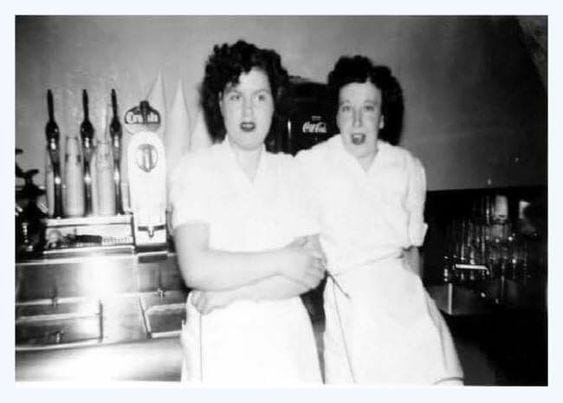
At the outset of her career, Patsy struggled to find a groove. She conceived of herself as a hillbilly and took to yodeling onstage at juke joints and cabarets wearing cowgirl outfits hand sewn by her mother. For two years, her records didn’t chart.
Then she performed “Walkin After Midnight,” on a televised talent competition and won. The song climbed to #2 on the country and #12 on the pop charts. Patsy updated her image, trading “fringed dresses and cowboy boots for high heels.”2 She started earning a solid living as a singer, but gave all her money to her mother so she could pay down the mortgage on her house.
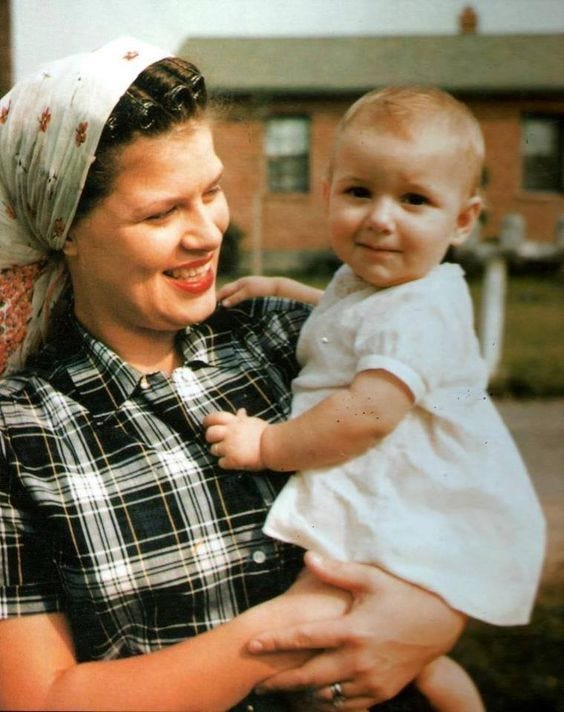
Just as her single “I Fall to Pieces” started to climb the charts in the summer of 1961, disaster struck.
Patsy and her brother Sam were driving to the store to buy material for her mother to make some clothing when a car struck them head on. Two of the three passengers in the other vehicle would die from the accident. Plastic from the steering wheel lodged into Sam’s chest, and Patsy was thrown through the windshield, suffering a dislocated hip, broken ribs, and a cut that ran the length of her face, barely missing her eyes.
Patsy’s injuries were so life-threatening that hospital employees didn’t expect her to survive. She stayed in Madison Hospital for over a month. Upon leaving, she almost immediately returned to work. Patsy performed at the Grand Ole Opry in a wheelchair and toured the midwest singing on crutches. She would never have plastic surgery, and it would reportedly take her nearly four hours to apply makeup to hide her scar. She suffered from headaches for the rest of her life, often wearing a headband to suppress the pain. (See videos below.)
After the car accident, the first hit she recorded was “Crazy,” written by Willie Nelson. Patsy was still recovering when she first tried recording the song, and hitting its high notes caused rib pain. Her producer sent her home to rest while musicians laid down the track without her. A week later she returned and recorded her vocal in just a single take. It would become her biggest hit.
She followed up with “She's Got You,” “So Wrong,” and “Imagine That.” The poor country girl finally had earned enough money to buy her family a “dream home,” outside of Nashville, where they had a large backyard.
It was around this time that a dog came into Patsy’s life: a small white puppy named Pepe, for Pepe LePew. If you take the time to visit the Patsy Cline Museum in Patsy’s hometown in Virginia, you may catch a glimpse of Pepe in some of the young family’s home videos, in between Patsy painting her nails and Charlie sipping a beer.
I wrote into the Patsy Cline Museum to ask about Pepe, and they told me that the puppy was with the family when Patsy died at the age of 30 in a plane accident on her way home from a concert in Kansas.
Patsy’s daughter Julie specifically remembers that on the day Patsy didn't come home, a neighbor took her on a drive to board the puppy at the vet, since the family would have to leave town for the funeral services. Julie can’t remember how long they kept Pepe after that day. Patsy’s children went to live with their grandmother, surrounded by kids and families who had no idea that they were the children of the great country star who had died too young.
Patsy Cline seems to have had a gift for premonitions.
In the year before her death, she famously told Dottie West, June Carter Cash, and Loretta Lynn separately that she didn’t expect to live much longer.3 (In 1961, Patsy even sketched out her will on a Delta Airlines flight, going as far as to specify her burial outfit.)
And after she finished her final performance, fog prohibited Patsy’s plane from taking off in its first attempt. Her friend Dottie West suggested Patsy join her instead on a 16-hour drive home. “Don’t worry about me, Hoss,” Patsy responded. “When it’s my time to go, it’s my time to go.” The next day, Patsy Cline boarded a plane that she’d never disembark.
Stephen M. Deusner wrote a beautiful review of Patsy’s last album. In it he laments that because of this plane crash, we never got to see Patsy Cline’s suffering abate: “We never got to see her expand her repertoire to songs that elaborated on that sadness or countered it with contentment. Patsy Cline never even got a chance for a happy ending.”
But after reading about the full course of Patsy’s life, I can’t help but wonder if Patsy Cline did indeed get her happy ending in those final years—with her young family, her blooming singing career, her dream home with its big backyard, and, of course, her dog, Pepe.
In 1954, at the outset of her career, Patsy committed a happy premonition to record with her song “I’m Walking the Dog.” Perhaps this premonition came true, too.
Such an easy life, I never knew
Well, I can't believe that it's really true
Well, I'm a carefree gal that's seen the light
And I'm a-walkin' that dog all the day and all nightWell, I'm full of pep, I just can't grow old
I got a one-track mind, so I've been told
But I'm fancy free, I don't worry no how
'Cause I'm walkin' that dog, all the law will allowSuch an easy life, I never knew
Until the day that I left you
Well, I'm a carefree gal that's seen the light
And I'm walkin' that dog all the day and all night
Bonus: Playlist
If you need a good Patsy Cline playlist, here’s one I made for myself of my favorite songs:
Nassour, Ellis (1993). Honky Tonk Angel: The Intimate Story of Patsy Cline. New York, NY: St. Martin's Press. ISBN 0-312-08870-1.
https://pitchfork.com/reviews/albums/patsy-cline-sentimentally-yours/
The Encyclopedia of Country Music. Paul Kingsbury, Editor. New York: Oxford University Press. pp. 98–9.





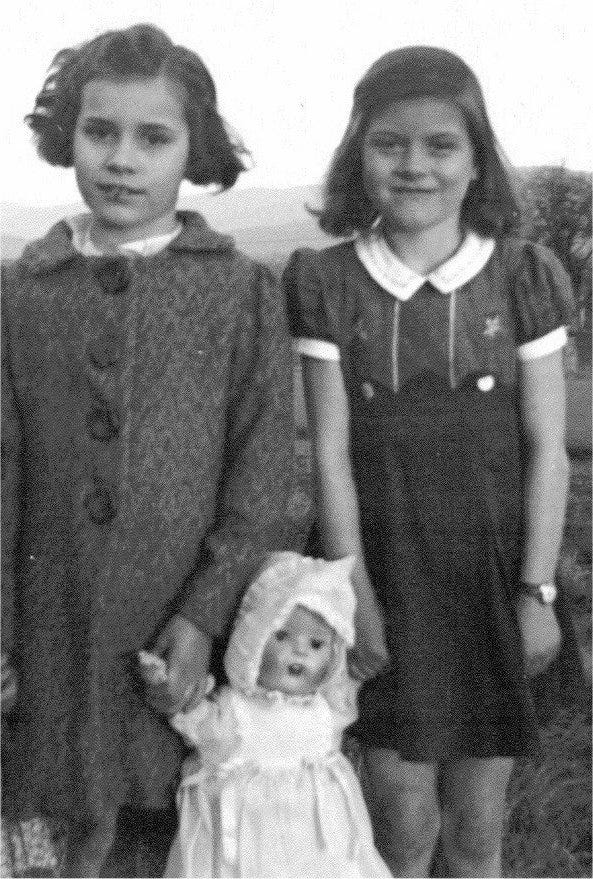

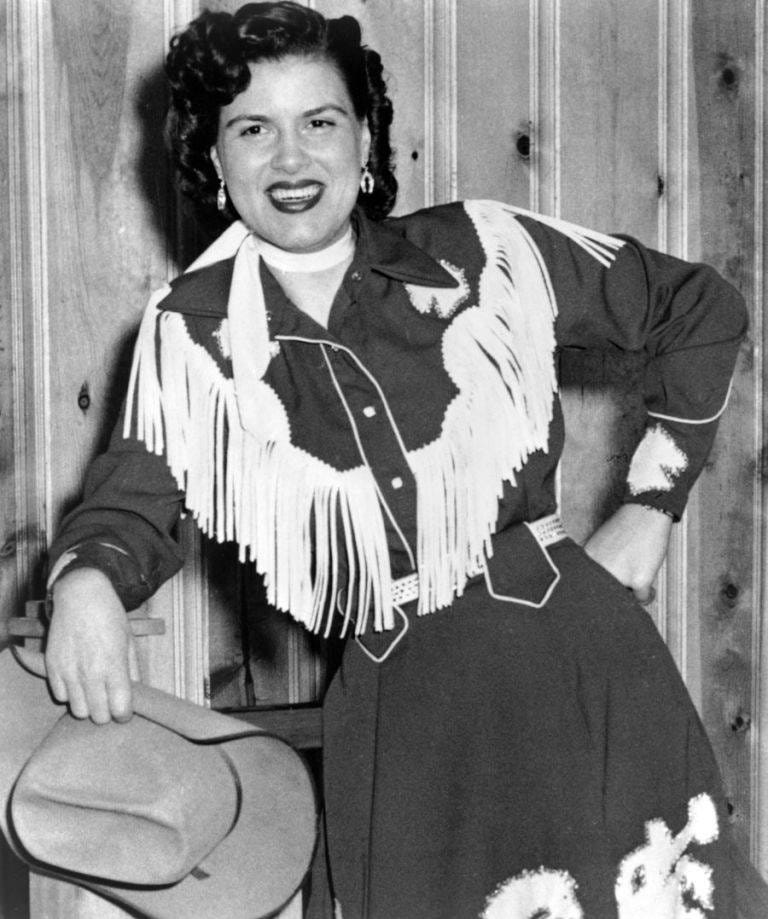
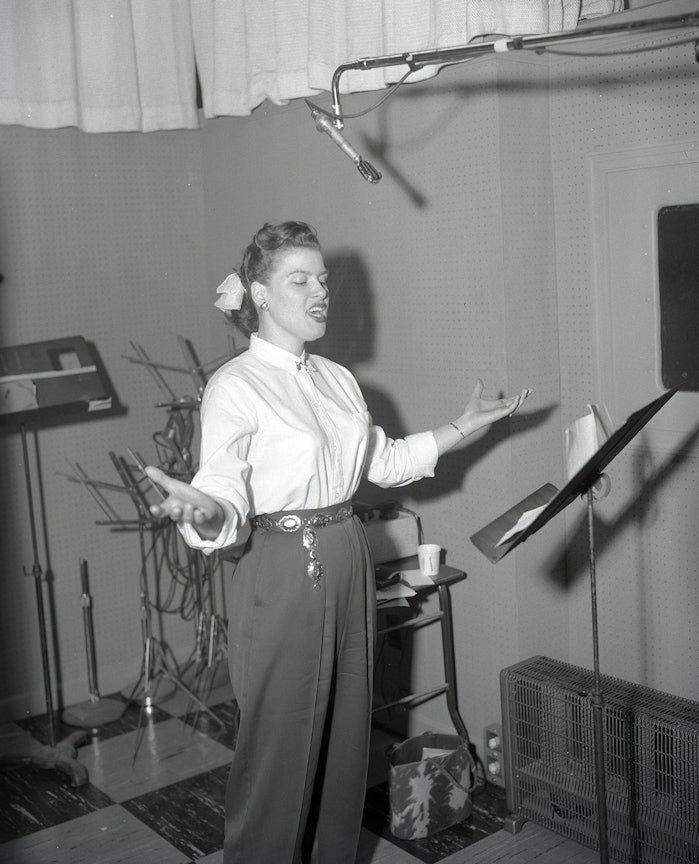
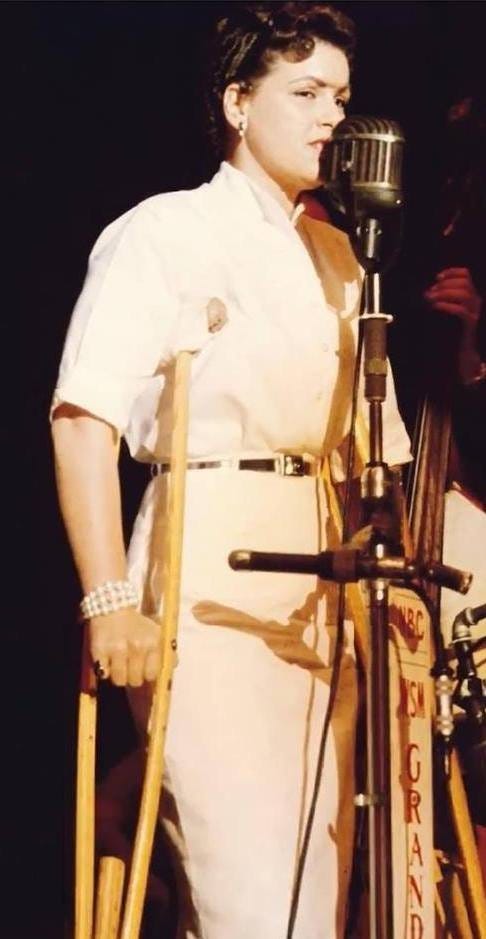
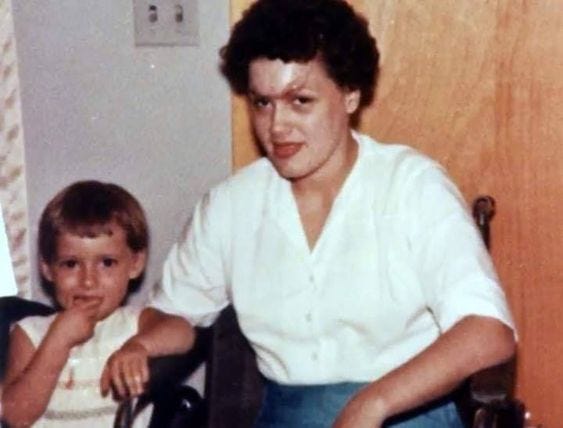

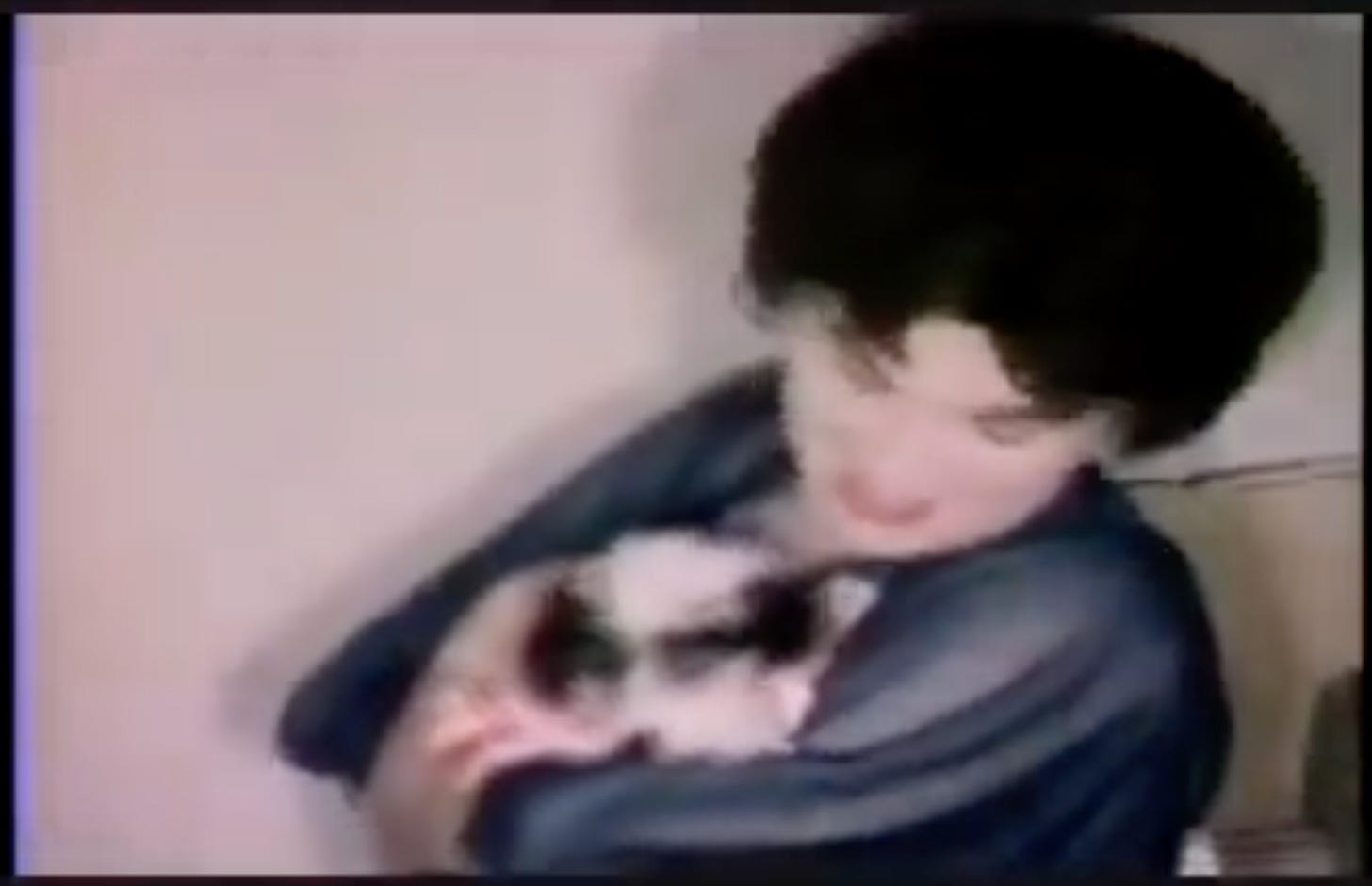


Legend ✨
This was a great one—I love Patsy Cline.